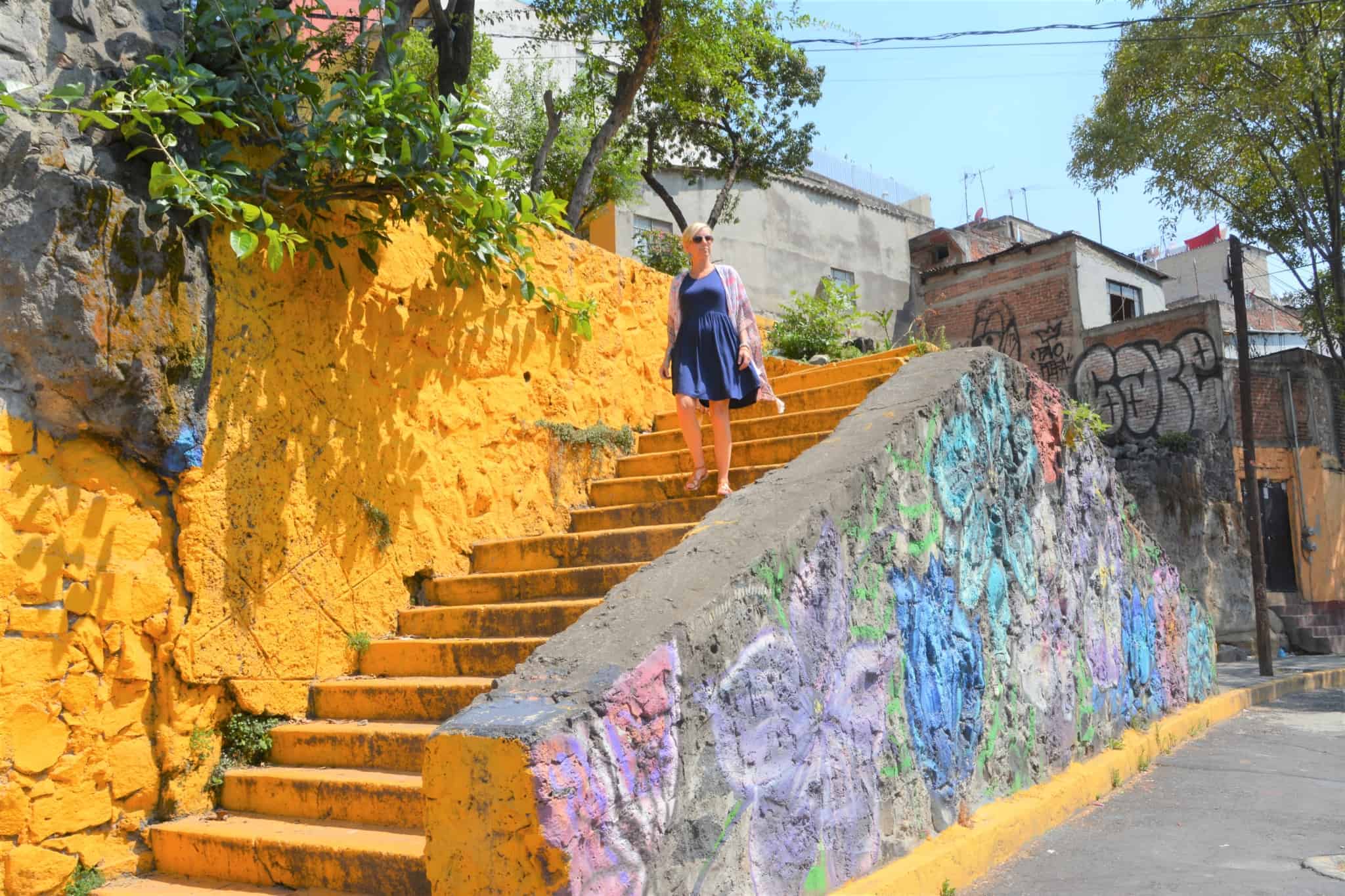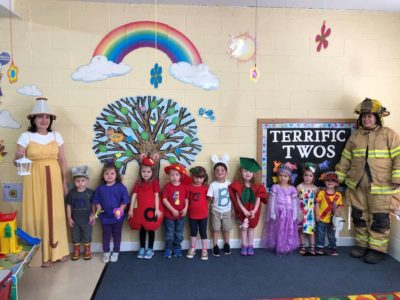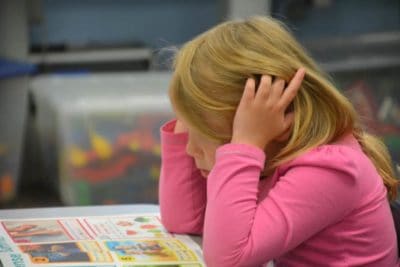Three years ago, a group of students found me. They showed up at my door every single day. Sometimes they brought friends and siblings. Sometimes they brought questions. Sometimes they just needed a place to eat or study or find direction. They didn’t speak my language. I spoke very little of theirs. But they found me.
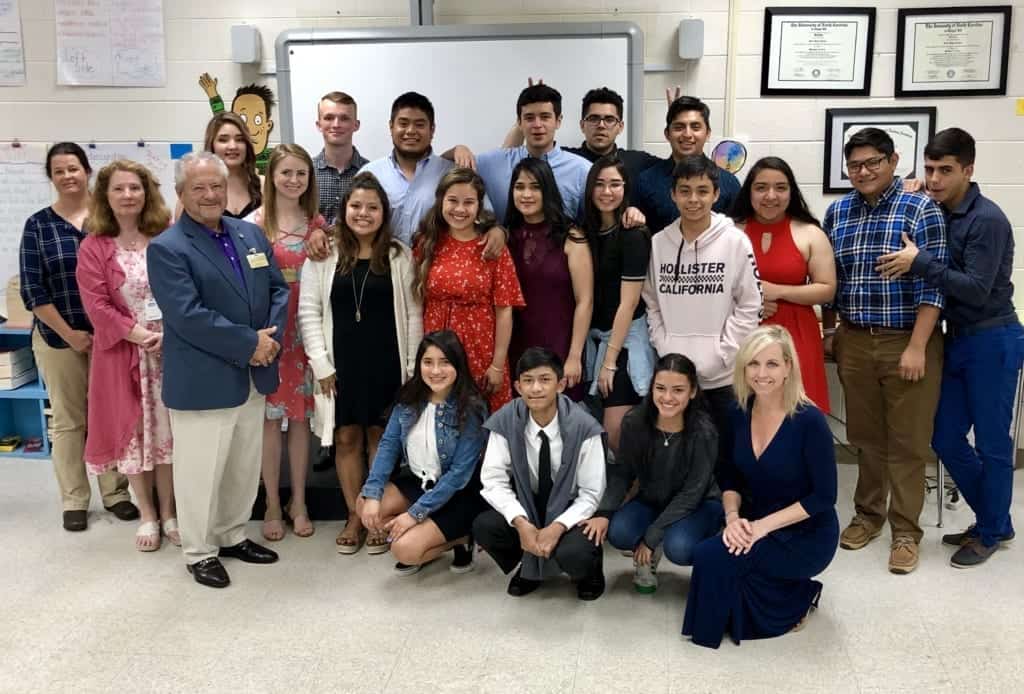

I didn’t know I needed them — not yet. But I did, and they needed me.
Last year, I advocated for them and others in similar situations — ones surrounded by barriers — to come together as a class. We could work through those barriers of language and learning together. I could guide them on projects they would need to tackle for their classes and graduation. We could meet people from the community and demystify perceptions. We could build bridges and tear down walls. We could be successful. Together.
This year, we have focused on reading, writing, speaking, and listening — standards-based goals for each day. We have learned things from poetic form to civic engagement. My students have become friends with the Mayor of Rutherfordton Jimmy Dancy and the Town Manager Doug Barrick. They met and talked with NC First Lady Kristin Bernhardt Cooper and the NC Teacher of the Year Freebird McKinney. They have learned important skills from our School Nurse Leah Robbins and taught Spanish and Portuguese to our Principal Phil Rogers. We have sought guidance from our civic liaison Stephanie Rzonca and made presentations to the Town Council that actually resulted in changes in our community.
But what we have done the most is build a family in our classroom.
On their last day in the classroom, they threw a fiesta to celebrate our year together. And at the end, Juan, who was graduating, had every single student stand up and give a farewell speech. I was blown away by the passion and love these kids have developed for each other and for this class. There was not a dry eye. And when Juan looked at each person in the room and specifically named their worth as a human being and told them that nothing is impossible and nothing must stand in the way of their education and future success, my soul was moved.
Sometimes God puts you right where you need to be. And sometimes He puts people right where you need them. I am a teacher, but this year these kids taught me. They imprinted my heart and soul, and I am forever changed.
These students prepared me to take a walk of empathy on my trip to Mexico with 41 other North Carolina educators — an immersive learning experience about history, culture, environment, and education in this country.
My students spent time each week teaching me about their hometowns: the language, the food, the culture, the shopping, the significance of geography, the politics, the schools, and everything they thought I’d need to know.
To build the empathy we need for our students, this trip is making me realize we need to understand the power of privilege.
On our second day, we got to experience power and privilege from two different perspectives. We started the day at the Peterson Private School — a school dedicated to an IB curriculum focusing on holistic academic experiences, global education, action research, and civic engagement. The openness of the school transcended the physical design — open-air courtyards, hallway breezeways, and outdoor learning spaces — to become reflected in the philosophy and pedagogy of the faculty, students, and parents. Everyone connected with this school is a stakeholder in the success of each and every student. I watched as parents and children sat down with teachers to conference on student work, and I witnessed students collaborating on the significance of life through poetry analysis and presenting capstone projects to faculty and parents. Every corner of this community offered a better life for all.
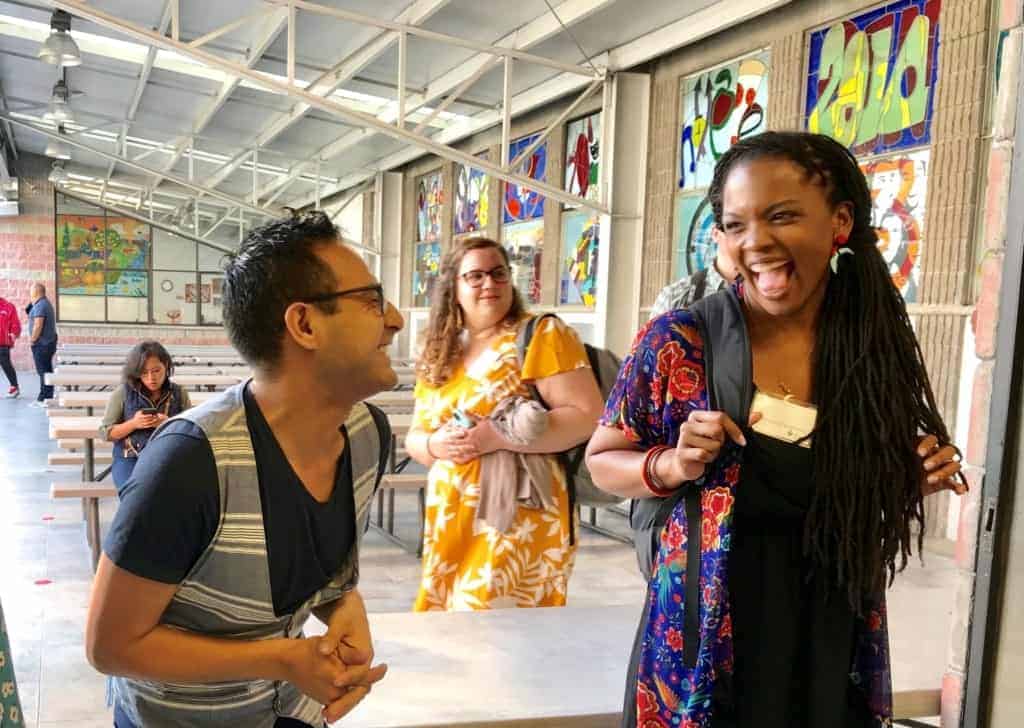

As an educator, I was inspired by the level of engagement, and the belief that each child can succeed, thrive, and develop into compassionate members of the greater community.
The privilege these students have is powerful because it affords them the opportunity to design a significantly better future for themselves.
The afternoon, however, gave us a stark contrast as we visited the Casa Tochan Migrant Shelter and heard the stories of men who have been through more challenges in life than I could ever imagine.
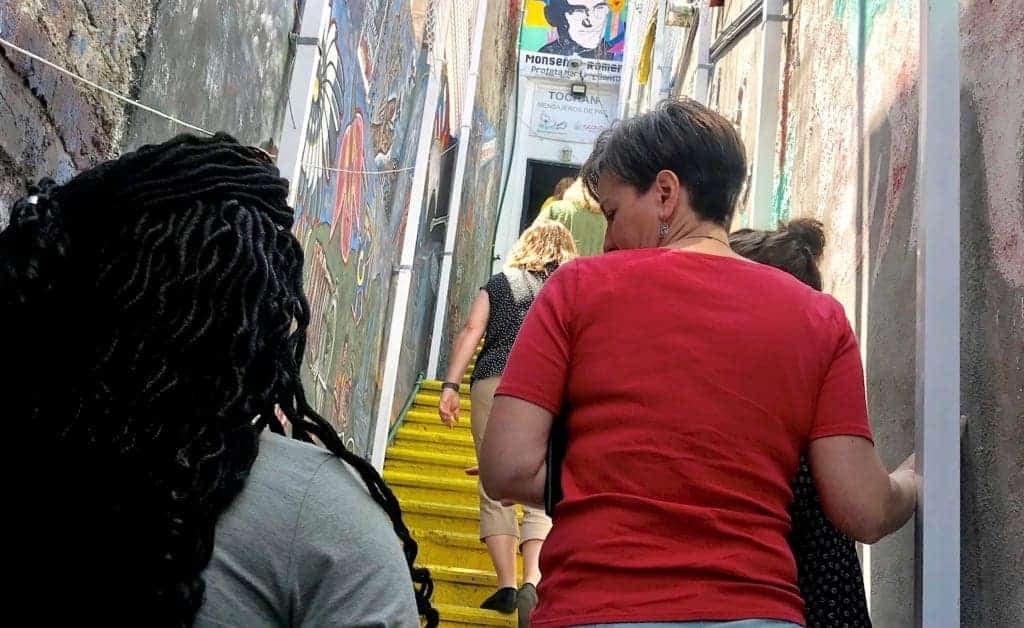

In my classroom, we discuss the importance of symbolism and how ascending or descending stairs is important in a story. It did not go unnoticed that as we climbed what seemed to be unending stairs, we were ascending into the better life offered to the men who were seeking refuge from their lives of turmoil. And at the top of the stairs, I was struck by two things:
A notice: “If you have fear of going back to your country because of threats to your life, security, or liberty, you have the right to protection as a refugee in Mexico.”
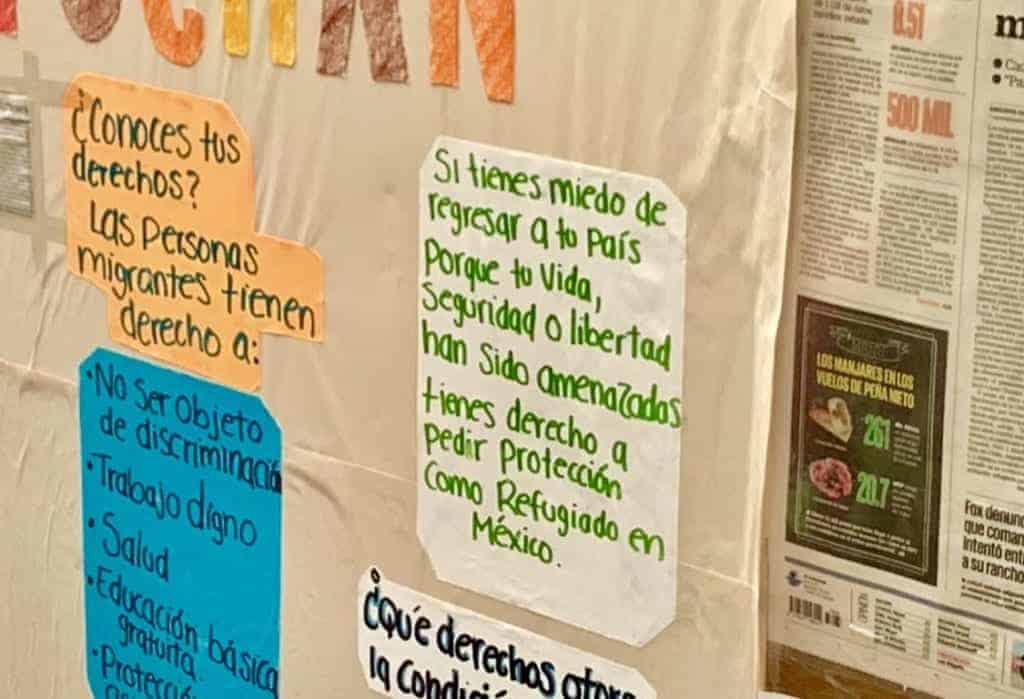

A mural: “Dreams are not illegal.”
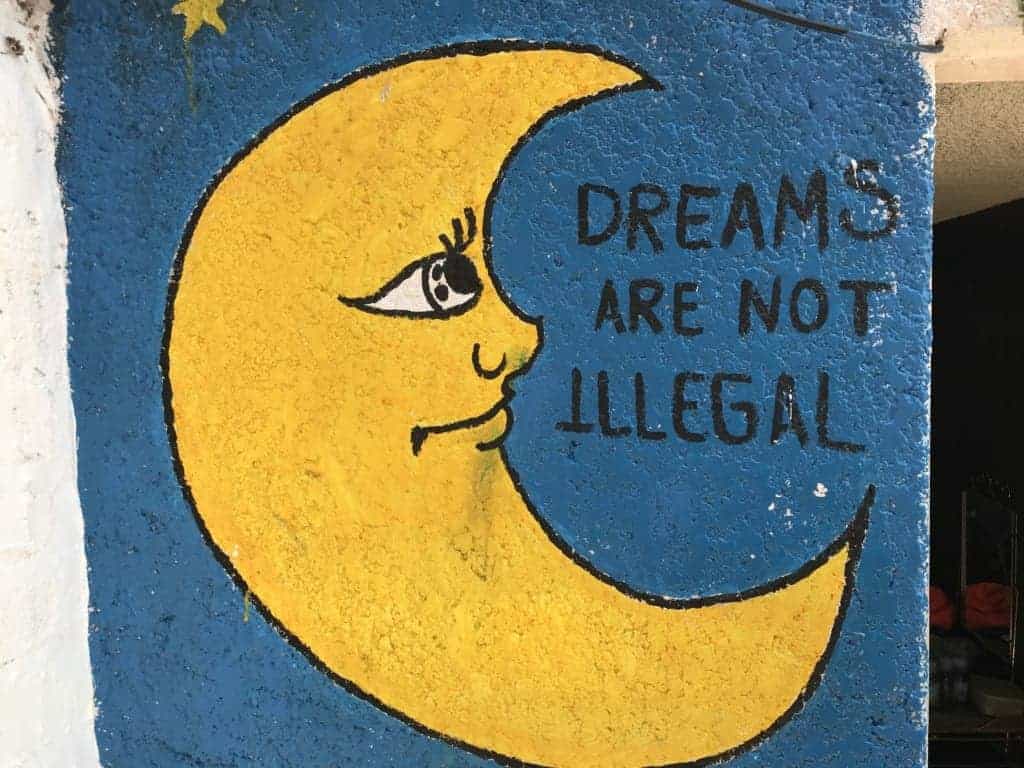

I have heard so often that people are trying to immigrate because they want a better life or a better job. But after hearing one story after another detailing the danger these men faced in their lives, and then the unimaginable barriers they faced to escape, it became clear that these men were just trying to live.
This Casa offered them the privilege of life, and the power of their stories afforded each of us who sat and listened a closer walk of empathy for the horrors of this world and the sheer determination and resilience to dream big.
I had the opportunity to sit down with Miguel, a refugee whose sister was killed because she would not marry a gang member and who fled his homeland without his 7-year-old son to escape death. He spoke much better English than I did Spanish, and he asked me if I would read with him because he was struggling with some of the words. He wanted desperately to learn enough English to get a job so that he could save up and bring his son to Mexico. He clasped his heart, and I watched tears swell in his eyes as he spoke of his dreams for himself and his son, and how much better life would be once they were together in Mexico as a family.
Too often, the stories of immigrants go unheard; the perception of “other” is conceived without listening. For this teacher, the power of this trip has been the privilege to become immersed in the stories of others, to connect with two very interconnected countries, and to embark on my walk of empathy to discover what it means to be human.
In the end, empathy for others is what makes us all kindred spirits as we weave our stories together into the fabric of our collective global narrative.
Editor’s Note: For more on Pittman’s class, see this article by Mackenzie Wicker in The Daily Courier, “ESL students learn language and belonging.”
